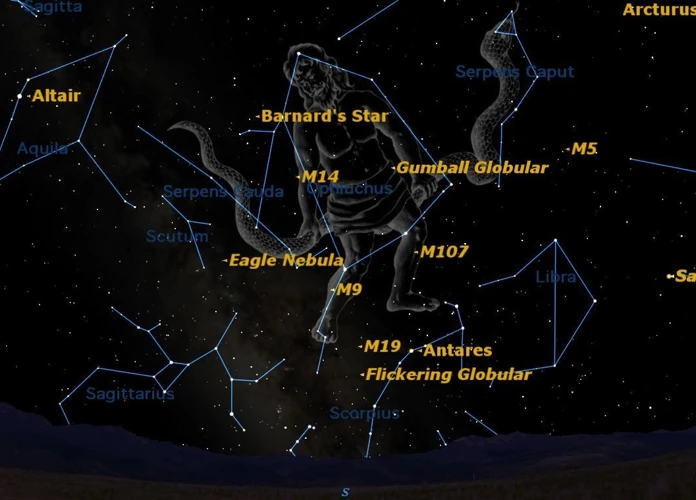Astrology has long captivated the human imagination, offering insights into personality traits, compatibility, and even future events. However, the traditional zodiac system may have left out a significant player in the cosmic game. Enter Ophiuchus, a mysterious and lesser-known constellation that has piqued the curiosity of both scientists and astrologers alike. In this article, we will delve into the science behind Ophiuchus, explore its role in astrology, unravel the mythology surrounding it, and examine the ongoing debate between astronomy and astrology. Join us as we bridge the gap between science and mysticism and uncover the hidden secrets of Ophiuchus.
Contents
- The Science Behind Ophiuchus
- Ophiuchus in Astrology
- Mythology Surrounding Ophiuchus
- The Ongoing Debate
- Scientific Studies on Astrology
- Exploring Ophiuchus Traits
- Ophiuchus: An Evolution of Astrology
- Conclusion
-
Frequently Asked Questions
- Why is Ophiuchus not included in the traditional zodiac system?
- What is the significance of Ophiuchus in astrology?
- Does Ophiuchus have specific personality traits?
- Are Ophiuchus individuals compatible with other zodiac signs?
- What is the mythology behind Ophiuchus?
- Are there other cultural interpretations of Ophiuchus?
- What is the astronomical perspective on Ophiuchus?
- How does science view astrology and Ophiuchus?
- Are there scientific studies examining the validity of astrology?
- What career paths may be suitable for Ophiuchus individuals?
- References
-
Frequently Asked Questions
- What is Ophiuchus and how does it bridge the gap between science and astrology?
- Is Ophiuchus recognized by astronomers and astrologers?
- What is the history behind Ophiuchus?
- How is Ophiuchus depicted in astronomy and astrophysics?
- What is the zodiac and why is Ophiuchus considered the 13th sign?
- What are the characteristics and traits of Ophiuchus individuals?
- How compatible is Ophiuchus with other zodiac signs?
- What role does Ophiuchus play in Greek mythology?
- How does the ongoing debate between astronomy and astrology affect the recognition of Ophiuchus?
- What does scientific research say about the validity of astrology?
- References
- Read More
The Science Behind Ophiuchus
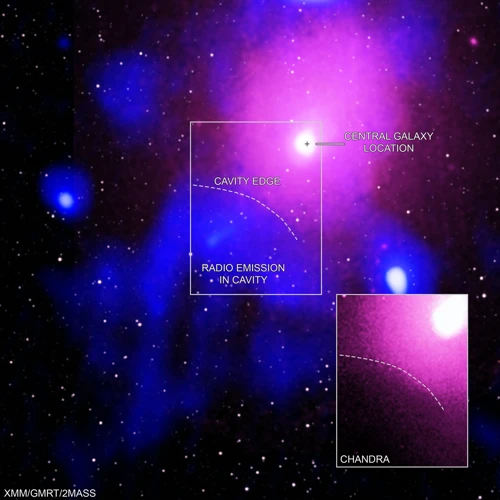
Ophiuchus, often referred to as the serpent bearer, has a rich scientific background that intertwines with the fields of astronomy and astrophysics. A Brief History of Ophiuchus takes us back to ancient times when this constellation was first observed and named. Its significance in astronomy and astrophysics lies in its close proximity to the ecliptic, the path that the Sun appears to take across the sky. This celestial alignment has led to intriguing findings and studies, particularly in relation to the zodiac and the movement of celestial bodies. Additionally, Ophiuchus has sparked interest in the exploration of black holes, with several scientific theories and /unraveling-mystery-black-holes/ studies suggesting a potential connection. The scientific exploration of Ophiuchus opens pathways to the discovery of celestial phenomena and expands our understanding of the universe.
A Brief History of Ophiuchus
- Ancient Origins: The history of Ophiuchus stretches back to ancient civilizations, where it finds its roots in Babylonian and Egyptian cultures. The earliest recorded mention of this constellation can be traced to the Babylonians, who believed that the figure represented their god of healing and medicine. This association with healing was further reinforced in Egyptian mythology, where Ophiuchus was seen as a counterpart to the god Imhotep, renowned for his healing abilities and wisdom. The prominence of Ophiuchus in these ancient cultures highlights its significance in the spiritual and mystical aspects of human existence.
- The Zodiac Connection: Ophiuchus’s role in the zodiac is a subject of fascination and debate. In the Western astrological tradition, the zodiac consists of twelve signs based on the Sun’s apparent path across the sky. However, ancient astronomers observed that the Sun also passes through a thirteenth constellation, Ophiuchus. This discovery challenged the traditional zodiac system, raising questions about the validity and interpretation of astrological charts. While some astrologers have embraced Ophiuchus as the thirteenth zodiac sign, it has yet to gain widespread acceptance within the astrological community.
- Cultural Representations: Throughout history, Ophiuchus has been depicted in various cultural and artistic representations. In addition to its connections to healing and medicine, the symbol of Ophiuchus has also been associated with wisdom, knowledge, and the pursuit of higher spiritual understanding. Its presence can be seen in ancient Egyptian /unraveling-book-dead-egyptian-mythology/ hieroglyphs and in the Rod of Asclepius, a widely recognized symbol of the medical profession that features a serpent entwined around a staff, attributed to the healing abilities of Ophiuchus. The symbol continues to be a powerful representation of healing and medicine in modern times.
Ophiuchus in Astronomy and Astrophysics
Ophiuchus occupies a significant place in the realm of astronomy and astrophysics. Its position along the ecliptic, the apparent path of the Sun across the sky, has led to numerous scientific investigations and discoveries. Astronomers have observed that Ophiuchus lies near the center of the Milky Way galaxy, a region abundant in celestial activity. This proximity has allowed scientists to study various cosmic phenomena, such as star formation, stellar evolution, and the dynamics of interstellar matter. Ophiuchus has also been associated with the study of black holes, owing to its location near the galactic center. The gravitational pull exerted by the massive black hole at the heart of our galaxy contributes to the intricate dance of stars within Ophiuchus. Its presence within the zodiac has sparked discussions and research regarding the potential influence of this constellation /the-ophiuchus-symbol-healing-medicine/ on astrological interpretations. This intersection of astronomy and astrophysics sheds light on the scientific significance of Ophiuchus, providing a fascinating subject of study and exploration in the cosmic tapestry.
Ophiuchus in Astrology
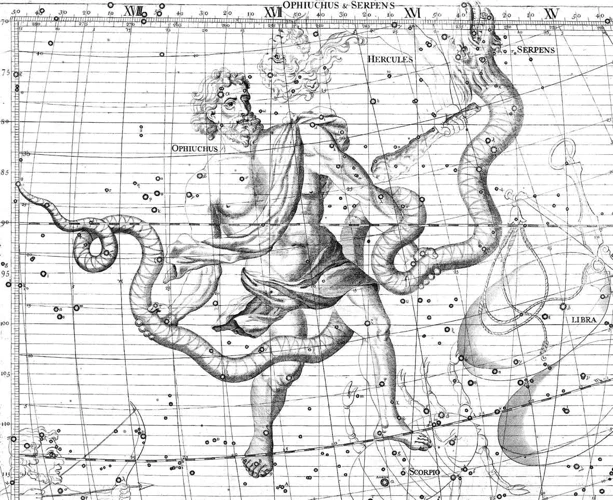
Astrology enthusiasts and practitioners have always been fascinated by Ophiuchus and its role within the zodiac system. To grasp its significance, it’s essential to provide The Zodiac: A Quick Overview. The zodiac is a circle of twelve astrological signs, traditionally representing different personality traits and characteristics. However, Ophiuchus challenges this conventional system by introducing a thirteenth sign. Ophiuchus: The 13th Sign has emerged as a hot topic of discussion in astrology circles. With its symbol of the serpent bearer, Ophiuchus brings a unique blend of traits and characteristics that add depth and complexity to the astrological landscape. Individuals born under this sign are said to possess keen intuition, wisdom, and a desire for healing and transformation. Characteristics and Traits of Ophiuchus further explore the personality traits associated with this newly recognized zodiac sign. Examining Compatibility with Other Zodiac Signs allows us to understand how Ophiuchus interacts with the other signs and explore the potential dynamics of relationships. Astrology enthusiasts continue to delve into Ophiuchus, exploring its potential impact on birth charts, horoscopes, and personal interpretations, making it a subject of ongoing fascination and debate.
The Zodiac: A Quick Overview
The Zodiac is a fundamental concept in astrology, representing a symbolic path divided into twelve equal parts, known as zodiac signs. Each sign is associated with specific dates and is believed to influence an individual’s personality and life events. Let’s take a closer look at :
1. Aries (March 21 – April 19): Known for their bold and energetic nature, Aries individuals are often enthusiastic leaders and risk-takers.
2. Taurus (April 20 – May 20): Taureans are known for their reliable and grounded personalities. They value stability and are often associated with an appreciation for beauty and material possessions.
3. Gemini (May 21 – June 20): Geminis are versatile and social beings, known for their intelligence and communication skills. They are often curious and adaptable.
4. Cancer (June 21 – July 22): Cancerians are sensitive and nurturing individuals. They are known for their emphasis on family and emotions.
5. Leo (July 23 – August 22): Leos are charismatic and confident individuals. They are natural leaders with a flair for drama and creativity.
6. Virgo (August 23 – September 22): Virgos are analytical and detail-oriented. They possess a strong sense of duty and practicality.
7. Libra (September 23 – October 22): Libras are known for their focus on balance and harmony. They are social and diplomatic individuals who value fairness.
8. Scorpio (October 23 – November 21): Scorpios are intense and mysterious individuals. They are known for their determination and passion.
9. Sagittarius (November 22 – December 21): Sagittarians are adventurous and free-spirited. They have a love for exploration and are often philosophical.
10. Capricorn (December 22 – January 19): Capricorns are ambitious and disciplined individuals. They are known for their strong work ethic and reliability.
11. Aquarius (January 20 – February 18): Aquarians are innovative and independent thinkers. They value intellectual pursuits and often possess a humanitarian outlook.
12. Pisces (February 19 – March 20): Pisces individuals are imaginative and compassionate. They are often associated with artistic talents and a deep empathy for others.
This quick overview of the zodiac signs provides a glimpse into the diverse range of personalities and traits attributed to each sign. It’s worth noting that astrology is a complex field, and individual birth charts, which take into account the position of planets at the time of birth, provide a more comprehensive analysis. However, understanding the basic characteristics associated with each zodiac sign can offer intriguing insights into ourselves and those around us.
Ophiuchus: The 13th Sign
Ophiuchus, often referred to as the 13th sign of the zodiac, challenges the traditional understanding of astrology and introduces a new perspective. In the traditional zodiac system, there are only 12 signs, each representing a specific period of the year. However, Ophiuchus lies along the ecliptic just like the other signs, making a strong case for its inclusion.
Individuals born between November 29th and December 17th fall under the sign of Ophiuchus. Symbolized by a serpent bearer, this sign represents healing, wisdom, and transformation. Those born under Ophiuchus are believed to possess deep spiritual understanding and are driven by a desire to help others.
The inclusion of Ophiuchus as a zodiac sign brings forth a new set of personality traits and characteristics. Ophiuchus individuals are often seen as natural healers, both physically and emotionally. They tend to possess a strong intuition and are drawn towards professions in healthcare, counseling, or spiritual guidance.
In terms of relationships, Ophiuchus individuals are known for their loyalty and commitment. They have a charismatic and magnetic personality that attracts others, but they can also be highly selective when it comes to choosing a partner. Their ideal match is someone who can match their level of passion, intellectual curiosity, and spiritual depth.
While the recognition of Ophiuchus as a zodiac sign has gained some popularity, it is important to note that not all astrologers acknowledge its inclusion. There is an ongoing debate within the astrological community as to whether Ophiuchus should be fully incorporated into the zodiac system or remain an ancillary constellation.
As astrology continues to evolve and adapt to new perspectives, Ophiuchus challenges the traditional boundaries and offers a different lens through which to view the influence of the stars and celestial bodies on human lives. Whether as a 13th sign or an alternative archetype, Ophiuchus adds depth and complexity to the astrological tapestry, inviting us to explore the mysteries of the cosmos with an open mind.
- Healing: Ophiuchus individuals are natural healers, both physically and emotionally.
- Wisdom: They possess deep spiritual understanding and are driven by a desire to seek wisdom.
- Transformation: Ophiuchus represents transformation and rebirth, symbolizing the shedding of old patterns.
- Loyalty: Those born under Ophiuchus are known for their loyalty and commitment in relationships.
- Charismatic: They have a magnetic personality that attracts others and exudes charm.
- Intellectual Curiosity: Ophiuchus individuals are intellectually curious and constantly seeking knowledge and understanding.
- Selective in relationships: They can be highly selective when it comes to romantic partners, seeking a deep connection.
Characteristics and Traits of Ophiuchus
Mythology Surrounding Ophiuchus

The mythology surrounding Ophiuchus is shrouded in ancient tales and legends from various cultures. Ophiuchus in Greek Mythology finds its roots in the story of Asclepius, the son of Apollo and a skilled healer. Asclepius possessed incredible healing powers and was known for his ability to revive the dead. However, his immense power soon became a cause for concern among the gods, leading to his demise. Zeus, fearing Asclepius would disrupt the natural order of life and death, struck him down with a lightning bolt. As a tribute to his extraordinary abilities, Asclepius was immortalized as the constellation Ophiuchus. Apart from Greek mythology, Ophiuchus holds significance in other cultures as well. It finds mention in the Egyptian Book of the Dead, where it represents the serpent of wisdom and healing. This cosmic figure has become a symbol of healing and medicine in various traditions, /the-ophiuchus-symbol-healing-medicine/ playing a vital role in spiritual and symbolic contexts across the globe. Whether it is the tale of Asclepius in Greek mythology or its association with healing in ancient Egyptian beliefs, Ophiuchus continues to captivate our imagination with its mythological significance.
Ophiuchus in Greek Mythology
In Greek mythology, Ophiuchus holds a fascinating place, intertwining ancient legends with astrological significance. According to one myth, Ophiuchus represents Asclepius, the Greek god of medicine and healing. Asclepius was renowned for his exceptional healing abilities and was often depicted holding a staff with a serpent wrapped around it, which eventually became the symbol for medicine. The story goes that Asclepius learned the art of healing from Chiron, the wise centaur, and became so skilled that he could even restore life to the dead. However, this power alarmed the gods, particularly Hades, the ruler of the underworld. Afraid that Asclepius would disrupt the natural order of life and death, Zeus struck him down with a thunderbolt. To honor his contributions, Zeus immortalized Asclepius by placing him in the sky as the constellation Ophiuchus, forever symbolizing healing and medicine. The presence of Ophiuchus in Greek mythology adds an extra layer of fascination to this constellation and lends it a unique significance in ancient mythology and astrological interpretations.
Ophiuchus in other Cultures
Ophiuchus, the serpent bearer, holds significance not only in Greek mythology but also in various other cultures across the globe. In Egyptian mythology, Ophiuchus is associated with Imhotep, who was revered as a healer and a wise man. Imhotep’s symbol, the rod of Asclepius, is often connected to Ophiuchus, highlighting the celestial connection between the constellation and the realms of healing and medicine. Similarly, in Chinese culture, Ophiuchus is linked to the story of the Yellow Emperor, a legendary ruler and a symbol of wisdom, who is said to have gained knowledge about medicine and healing from the divine Ophiuchus constellation. In Mayan civilization, Ophiuchus was associated with the deity known as the Vision Serpent, a representation of wisdom, divine knowledge, and spiritual transformation. These cultural connections demonstrate the universal allure and influence of Ophiuchus and its role beyond the realms of Greek mythology.
The Ongoing Debate
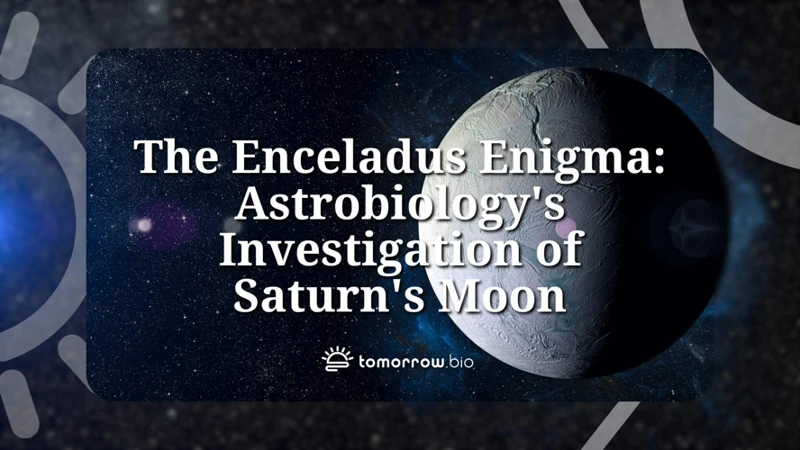
The existence and role of Ophiuchus has sparked an ongoing debate between astronomers and astrologers. The Astronomical Perspective argues that the zodiac should consist of only twelve signs, as defined by the positions of celestial bodies at the time of an individual’s birth. Astronomers emphasize the scientific accuracy of their calculations and measurements, dismissing Ophiuchus as a mere constellation with no astrological significance. On the other hand, The Astrological Perspective contends that there is merit in considering Ophiuchus as the thirteenth zodiac sign. Astrologers argue that the influence of the stars and constellations on human lives goes beyond scientific observations, and Ophiuchus brings a unique energy and set of traits to the astrological wheel. This clash of perspectives continues to fuel discussions and debates, with each side presenting compelling arguments to defend their stance. Whether Ophiuchus should be incorporated into astrology or remain a topic of astronomical study is a topic that remains contentious and unresolved.
The Astronomical Perspective
From an astronomical perspective, Ophiuchus provides a fascinating lens to study the cosmos. Here are some key points to consider:
1. Position in the Celestial Sphere: Ophiuchus lies near the celestial equator, making it visible from various parts of the world throughout the year. Its location between Scorpius and Sagittarius places it in close proximity to the center of our galaxy, the Milky Way.
2. Constellation Characteristics: Ophiuchus is one of the largest constellations in the sky, spanning across a large area. It is depicted as a figure holding a serpent, as symbolized by its name. The constellation features several notable stars, such as Rasalhague (Alpha Ophiuchi) and Sabik (Eta Ophiuchi).
3. Relation to the Zodiac: While Ophiuchus is not officially recognized as a zodiac sign in Western astrology, its position intersects with the ecliptic—the apparent path of the Sun’s trajectory. This intersection means that the Sun passes through Ophiuchus for a brief period during its annual journey.
4. Precession and the Shifting Zodiac: The Earth’s precession—a gradual change in its rotational axis—has caused a shift in the alignment of constellations over time. Some argue that this shift affects the zodiac dates and potentially introduces Ophiuchus as a 13th zodiac sign. However, astronomers maintain that the zodiac is a Babylonian concept based on 12 equal divisions of the sky, not directly related to the constellations.
5. Scientific Studies: Ongoing astronomical studies aim to uncover more about Ophiuchus and its role in the cosmos. Researchers investigate stellar evolution, binary star systems, and the formation of galaxies within the boundaries of this constellation. These studies provide valuable insights into the nature of our universe.
By examining Ophiuchus through the astronomical perspective, scientists continue to deepen our understanding of celestial mechanics and the vastness of the cosmos. It highlights the intricate interplay between science and the wonders of the night sky.
The Astrological Perspective
From an astrological perspective, Ophiuchus has sparked both fascination and controversy. Astrologers have debated whether to incorporate Ophiuchus as the 13th zodiac sign in the traditional system. The Zodiac: A Quick Overview sets the stage by providing a concise explanation of the zodiac, which consists of twelve signs representing specific periods of the year. However, proponents argue that Ophiuchus should be included as a valid sign due to its alignment with the Sun’s path. It is believed that Ophiuchus individuals possess unique characteristics and Characteristics and Traits of Ophiuchus, making them different from individuals assigned to the other signs. Some astrologers emphasize Ophiuchus’ affinity for healing and medicine, suggesting a connection between the constellation and the medical field. This theory coincides with the symbol of Ophiuchus, which depicts a serpent entwined around a rod, often associated with healing and medicine. However, skeptics dismiss Ophiuchus’ inclusion, asserting that it disrupts the established system and interpretations of astrological charts. The ongoing debate surrounding Ophiuchus from an astrological standpoint continues to divide opinions within the astrological community.
Scientific Studies on Astrology
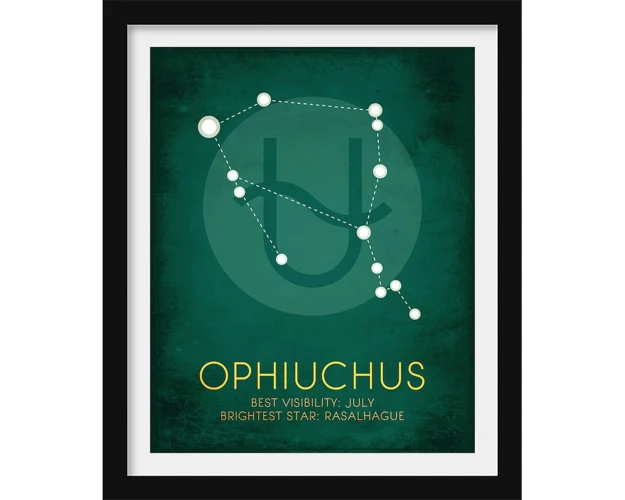
Scientific Studies on Astrology have been a topic of much scrutiny and debate. While astrology has existed for centuries, the scientific community has taken a more skeptical stance when it comes to its validity. Numerous studies have been conducted to examine the claims made by astrologers and determine if there is any scientific basis to support them. The Validity of Astrology has been a central focus of these studies, with researchers analyzing large sample sizes and comparing astrological predictions to real-life outcomes. While some studies have suggested a weak correlation between astrology and personality traits, others have found no significant evidence to support astrological claims. It is important to note that astrology often relies on generalizations and interpretations, making it difficult to conduct controlled experiments. Nevertheless, scientific exploration continues, with researchers seeking to understand the phenomenon through a Scientific Lens and discover any potential connections or patterns that may exist.
The Validity of Astrology
The validity of astrology has been a subject of debate and fascination for centuries. Critics argue that astrology lacks scientific evidence and is based on subjective interpretations and generalizations. They question the accuracy of astrological predictions and argue that the connection between celestial positions and human behavior is purely coincidental. On the other hand, proponents of astrology contend that it possesses intrinsic value and can provide valuable insights into individual personalities and life events. They argue that astrology is an ancient wisdom rooted in patterns and archetypes that resonate with human experiences. While scientific studies have been conducted to examine the validity of astrology, the results remain inconclusive. Some studies suggest a correlation between astrological traits and certain personality traits or life events, while others fail to find any significant evidence. The complexity of astrology makes it challenging to design controlled experiments that can definitively prove or disprove its validity. Ultimately, the validity of astrology is subjective and varies from person to person. It is up to individuals to decide whether they find value and meaning in astrology’s symbolism and interpretations.
Examining Ophiuchus through Scientific Lens
Examining Ophiuchus through a scientific lens offers valuable insights into its significance and impact. Scientific studies have sought to explore the correlation between astrological signs and human behavior, personality traits, and even medical conditions. Researchers have analyzed large datasets to identify patterns and trends associated with Ophiuchus individuals. These studies aim to determine if there are any unique characteristics or dispositions that align with this celestial sign. While the scientific community acknowledges the lack of empirical evidence supporting astrology as a predictive science, the interest in studying Ophiuchus is not merely dismissing astrology but rather understanding it from a critical standpoint. By examining Ophiuchus through a scientific lens, scientists hope to shed light on the psychological and sociological factors that contribute to individuals’ identification with this zodiac sign. This exploration also opens up avenues for further investigations into the potential influence of celestial bodies on human lives, including aspects such as mental health, personal development, and overall well-being. While there is ongoing debate surrounding astrology, examining Ophiuchus through a scientific lens brings a diverse and multidisciplinary approach to understanding the intricate relationship between humans and the cosmos.
Exploring Ophiuchus Traits
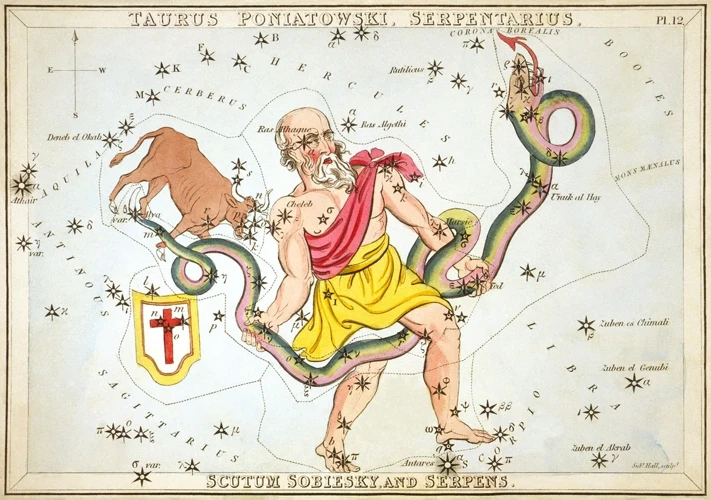
Exploring Ophiuchus Traits:
Ophiuchus individuals possess fascinating personality traits that set them apart from others in the zodiac. Known for their magnetic charisma, Ophiuchus individuals exude an air of confidence and natural leadership. They are highly intuitive, with a deep understanding of the human psyche and a knack for deciphering emotions. Ophiuchus individuals are fiercely independent and possess a strong sense of justice, often championing causes they believe in. They have a thirst for knowledge and are constantly seeking new experiences and perspectives. In relationships, Ophiuchus individuals are loyal and dedicated partners, prioritizing honesty and open communication. When it comes to career paths, they thrive in occupations that allow them to make a positive impact on others’ lives, such as counseling, healing professions, or advocacy. Ophiuchus individuals are complex and multi-faceted, offering a unique blend of qualities that make them truly distinctive.
Personality Traits of Ophiuchus Individuals
Ophiuchus individuals possess a unique blend of characteristics that set them apart from the traditional zodiac signs. Known for their magnetic and intense presence, they exude confidence and charm. With their natural curiosity and thirst for knowledge, Ophiuchus individuals are often seen as lifelong learners, constantly seeking wisdom and understanding. They have a deep sense of justice and fairness, making them advocates for social causes and the well-being of others. Their analytical minds allow them to approach problems with logic and precision, making them excellent problem solvers. Ophiuchus individuals also have a magnetic charisma, effortlessly drawing people towards them and often assuming leadership positions. However, they can sometimes be prone to stubbornness and possessiveness, as they value their independence and can be fiercely protective of their loved ones. Ophiuchus individuals possess a complex and multi-faceted personality that makes them both intriguing and captivating to those around them.
Relationships and Love Life of Ophiuchus
are often regarded as passionate, intense, and complex. Ophiuchus individuals bring a unique energy to their romantic relationships, characterized by their magnetic personalities and strong desires. They possess a deep sense of loyalty and commitment towards their partners, making them fiercely protective and dedicated. However, their passionate nature can also lead to possessiveness and jealousy if not kept in check. Ophiuchus partners are known for their ability to bring excitement and adventure into their relationships, constantly seeking new experiences and pushing boundaries. They crave deep emotional connections and intellectual stimulation, valuing open communication and honesty above all else. With their persuasive and charismatic nature, Ophiuchus individuals have the ability to effortlessly attract suitors. In relationships, they desire a partner who can match their intensity and provide a sense of stability. While they can be nurturing and supportive partners, they also have a tendency to become controlling at times. Ophiuchus’s love life is often filled with a rollercoaster of emotions, as they navigate the delicate balance between their strong desires and their need for security and stability. These individuals seek partners who can understand and accept their multi-faceted nature, as well as bring excitement and passion to their lives.
Career Paths for Ophiuchus
Ophiuchus individuals possess a unique set of traits that can influence their career paths. They are known for their curiosity, intellect, and natural inclination towards helping others, making them well-suited for professions in the fields of science and medicine. Their thirst for knowledge and strong analytical skills make them excellent researchers, scientists, and academics. The healing and nurturing aspects of Ophiuchus can also lead them towards careers in healthcare, such as doctors, nurses, therapists, or alternative medicine practitioners. Ophiuchus individuals thrive in environments where they can make a positive impact on others’ lives, whether it be through counseling, social work, or advocacy work. With their charismatic nature, they may also excel in careers that involve public speaking or influencing others, such as motivational speakers or politicians. In the business world, Ophiuchus individuals can bring their innovative thinking and entrepreneurial spirit to start-ups or leadership positions that allow them to bring about positive change. Ultimately, the career paths for Ophiuchus individuals are diverse, but they all stem from their inherent desire to make a difference and contribute to the betterment of society.
Ophiuchus: An Evolution of Astrology
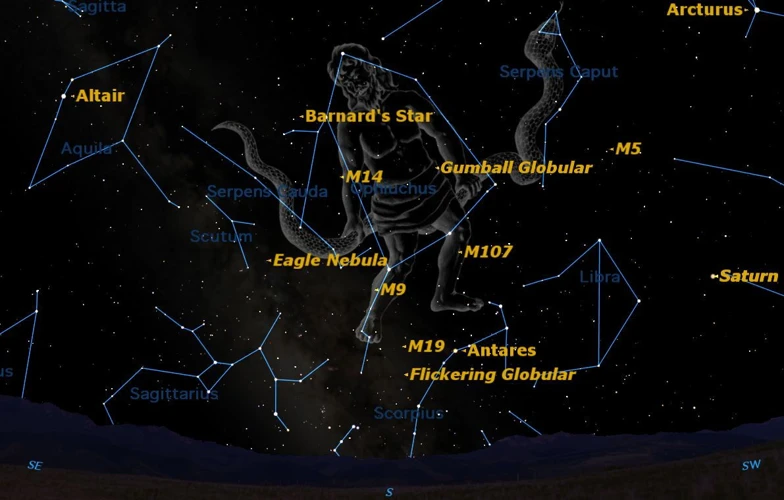
As astrology continues to evolve, Ophiuchus has emerged as a captivating addition to the traditional zodiac system. This evolution of astrology challenges the long-established belief of only 12 zodiac signs. Ophiuchus introduces the concept of a 13th sign, expanding the cosmic tapestry and inviting us to explore new dimensions of self-discovery and celestial influence. With its placement between Scorpio and Sagittarius, Ophiuchus brings forth a unique energy that blends the characteristics of both signs. Individuals born under Ophiuchus are said to possess a potent combination of passion, curiosity, and intuition, making them natural healers and visionaries. This newfound recognition of Ophiuchus in astrology signifies a shift towards a more inclusive and expansive understanding of the cosmic forces that shape our lives. It encourages us to delve deeper into the intricacies of our birth charts and explore the unique traits and influences of this enigmatic constellation. Ophiuchus invites us to embrace change, embrace growth, and embrace the ongoing evolution of astrology itself.
Conclusion

In conclusion, the exploration of Ophiuchus has shed light on the intricate relationship between science and astrology. From the scientific perspective, Ophiuchus has revealed fascinating insights into the celestial realm, with its unique position in the night sky and its potential links to phenomena like black holes. The incorporation of Ophiuchus into astrology as the 13th sign has sparked debates and discussions among astrologers and enthusiasts alike. While some embrace the addition of Ophiuchus as a means of refining astrological readings, others argue that it disrupts the traditional zodiac system. Ultimately, whether you view Ophiuchus through an astronomical lens or as a powerful astrological archetype, its presence serves as a reminder that our understanding of the universe is ever-evolving. As astrology and science continue to intersect and influence one another, Ophiuchus stands as a symbol of the ongoing exploration, pushing the boundaries of our knowledge. It is a reminder that the cosmos has much more to offer, and there are still mysteries waiting to be unraveled and /unraveling-book-dead-egyptian-mythology/ discovered. So, whether you identify as an Ophiuchus, one of the traditional zodiac signs, or simply an avid observer, Ophiuchus beckons us to embrace the wonder and complexity of the universe we inhabit.
Frequently Asked Questions

Why is Ophiuchus not included in the traditional zodiac system?
The traditional zodiac system consists of twelve signs representing different periods of the year. Ophiuchus, being relatively faint and located off the ecliptic, was excluded from the zodiac to maintain a neat division of the year into twelve equal parts.
What is the significance of Ophiuchus in astrology?
Ophiuchus is considered the 13th sign in astrology, offering an alternative perspective and adding depth to the interpretation of one’s birth chart. It introduces new traits and characteristics that individuals may identify with, influencing their astrological profile.
Does Ophiuchus have specific personality traits?
Individuals associated with Ophiuchus are believed to possess traits such as wisdom, intuition, healing abilities, and a deep connection with spirituality. However, it’s important to note that personal experiences and upbringing can also shape one’s personality.
Are Ophiuchus individuals compatible with other zodiac signs?
Ophiuchus individuals can find compatibility with various zodiac signs. Since Ophiuchus is a newer addition to astrology, compatibility interpretations are still evolving. However, harmonious matches may be found with signs that share similar traits or complement Ophiuchus’ strengths.
What is the mythology behind Ophiuchus?
In Greek mythology, Ophiuchus is associated with Asclepius, the god of healing and medicine. Legend tells of Asclepius’ ability to resurrect the dead and his symbol, the Rod of Asclepius, representing healing and rejuvenation.
Are there other cultural interpretations of Ophiuchus?
Apart from Greek mythology, Ophiuchus has ties to ancient Egyptian culture. It is believed to be associated with the Egyptian Book of the Dead, where it represents the concept of rebirth and transformation.
What is the astronomical perspective on Ophiuchus?
From an astronomical standpoint, Ophiuchus is a constellation located near the celestial equator. It is recognized and studied by astronomers for its position in relation to the ecliptic and its neighboring star systems.
How does science view astrology and Ophiuchus?
The scientific community generally regards astrology as a pseudoscience due to its reliance on unproven claims and lack of empirical evidence. While science acknowledges the existence of Ophiuchus as a constellation, it does not attribute specific influence or meaning to it.
Are there scientific studies examining the validity of astrology?
Scientific studies have been conducted to examine the validity and effectiveness of astrology. However, the majority of these studies have found no scientific evidence supporting the accuracy of astrological predictions.
What career paths may be suitable for Ophiuchus individuals?
Ophiuchus individuals’ deep understanding of human nature and their healing abilities may lead them to excel in careers such as medicine, psychology, therapy, alternative healing practices, and spiritual guidance.
References
- Old hoax resurfaces online about NASA adding 13th …
- Ophiuchus: what you didn’t know about the zodiac’s ‘new’ …
Frequently Asked Questions

What is Ophiuchus and how does it bridge the gap between science and astrology?
Ophiuchus is the 13th sign of the zodiac, often referred to as the forgotten or hidden sign. It bridges the gap between science and astrology by highlighting the intersection of astronomical observations and astrological interpretations.
Is Ophiuchus recognized by astronomers and astrologers?
Ophiuchus is recognized by astronomers as a constellation in the celestial sphere. However, it is not widely recognized by astrologers as a zodiac sign.
What is the history behind Ophiuchus?
Ophiuchus has a rich history dating back to ancient times. It is believed to have originated from Babylonian astronomy and later incorporated into Greek mythology.
How is Ophiuchus depicted in astronomy and astrophysics?
In astronomy and astrophysics, Ophiuchus is depicted as a constellation shaped like a man holding a snake. It is often associated with the myth of Asclepius, the Greek god of medicine.
What is the zodiac and why is Ophiuchus considered the 13th sign?
The zodiac is a belt of the celestial sphere that is divided into 12 equal parts, each representing a zodiac sign. Ophiuchus is considered the 13th sign due to its position along the ecliptic, the path that the Sun appears to follow throughout the year.
What are the characteristics and traits of Ophiuchus individuals?
Ophiuchus individuals are often described as ambitious, intuitive, and highly spiritual. They possess great wisdom and a deep desire to help others.
How compatible is Ophiuchus with other zodiac signs?
Ophiuchus is known to have a strong compatibility with signs such as Aries, Leo, and Sagittarius, due to their shared passion and adventurous nature. However, compatibility can vary depending on individual factors.
What role does Ophiuchus play in Greek mythology?
In Greek mythology, Ophiuchus is associated with the myth of Asclepius, the god of medicine and healing. Asclepius was believed to possess the ability to resurrect the dead, symbolizing the power of healing.
How does the ongoing debate between astronomy and astrology affect the recognition of Ophiuchus?
The ongoing debate between astronomy and astrology has led to a lack of recognition for Ophiuchus as a zodiac sign within the astrological community. Astronomers argue for its inclusion, while astrologers debate its relevance and impact on the traditional zodiac system.
What does scientific research say about the validity of astrology?
Scientific research on the validity of astrology has produced mixed results. While some studies suggest correlations between astrological traits and personality, others indicate a lack of scientific evidence to support astrological claims.

